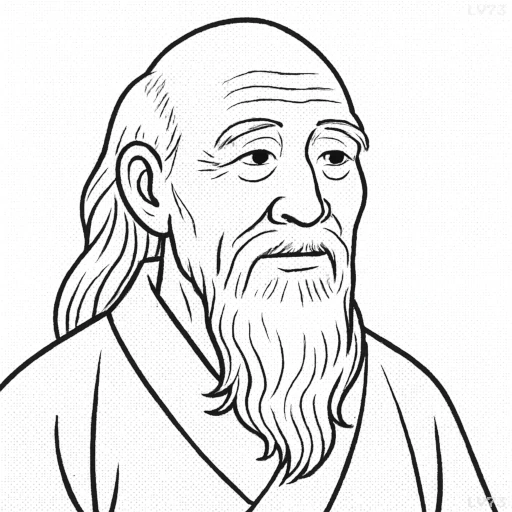“If the Great Way perishes there will morality and duty. When cleverness and knowledge arise great lies will flourish. When relatives fall out with one another there will be filial duty and love. When states are in confusion there will be faithful servants.”

- 571 BC? – 470 BC?
- Born in China
- Philosopher
table of contents
Quote
“If the Great Way perishes there will morality and duty. When cleverness and knowledge arise great lies will flourish. When relatives fall out with one another there will be filial duty and love. When states are in confusion there will be faithful servants.”
Explanation
This quote from Laozi highlights the natural order and the consequences of its disruption. The Great Way (Dao) represents a harmonious, balanced state of existence, where things flow naturally without force or interference. Laozi suggests that when this natural order is lost or perishes, human beings are left to create systems of morality and duty to fill the void. While these constructs may seem necessary, they are often imperfect and born out of the need to address disorder rather than true understanding of what is right.
The mention of cleverness and knowledge giving rise to great lies points to the potential for manipulation and falsehood when intellect is used for self-interest rather than the pursuit of truth. When people become too focused on cleverness or intellectual pursuits without grounding in the Dao, they can easily become disconnected from authenticity and honesty, leading to deception and dishonesty. In modern times, this warning resonates in the context of political rhetoric, advertising, and even personal relationships, where the use of intellectual manipulation can obscure the truth and distort reality.
The final parts of the quote describe the social consequences when harmony is lost within families or nations. Laozi suggests that when families experience conflict or when a nation is in disarray, people cling to the external ideals of filial duty and loyalty, rather than truly understanding these values from within. These concepts arise as responses to disconnection or chaos, rather than authentic expressions of love and respect. Today, this might be reflected in the way people sometimes feel compelled to uphold traditional values in the face of dysfunctional dynamics or national instability—as a way of preserving order in times of confusion. Laozi’s quote serves as a reminder that true harmony comes from alignment with the natural flow of life and not from forced moral systems or superficial expressions of loyalty, which are often reactive and disconnected from deeper truths.
Would you like to share your impressions or related stories about this quote in the comments section?




